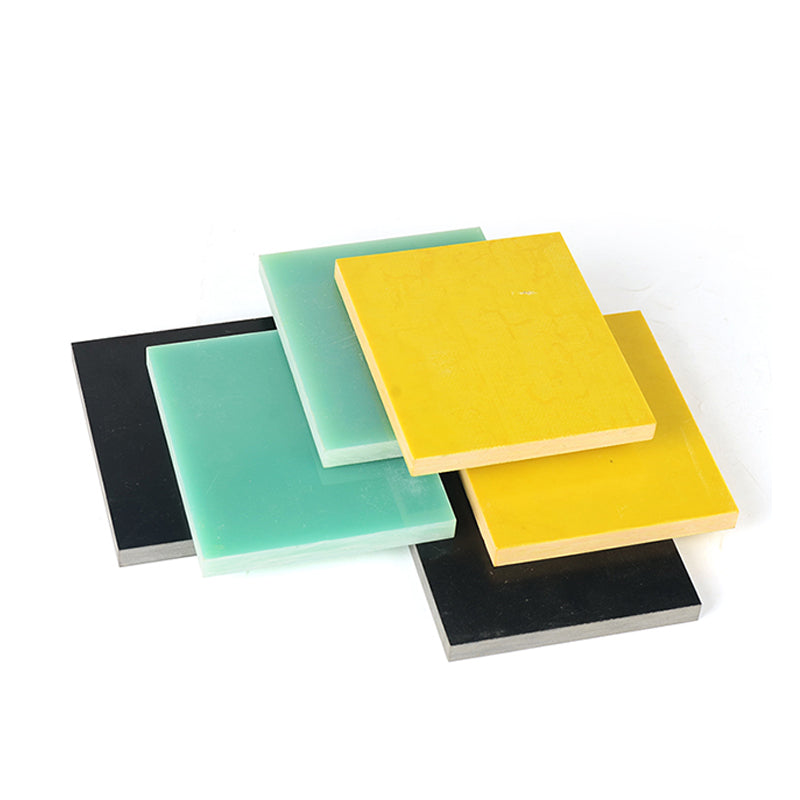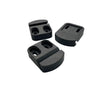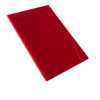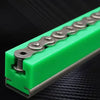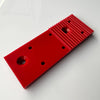A Guide to ABS Sheets for Prototyping Studios: From Design to Realization
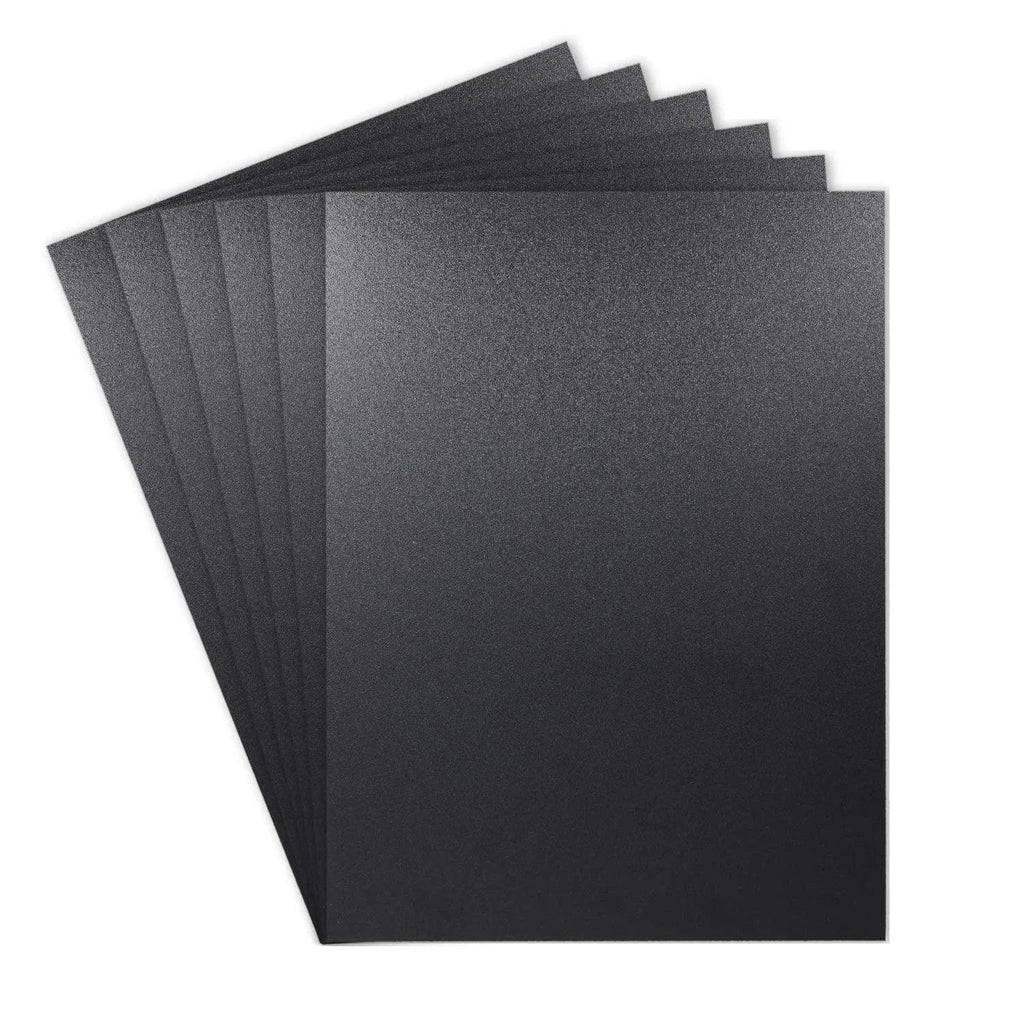
In "A Guide to ABS Sheets for Prototyping Studios: From Design to Realization," dive deep into the world of ABS plastic sheets, a staple in the prototyping process due to their remarkable versatility and cost-effectiveness. This blog post will explore how these thermoplastic panels streamline the design phase, allowing for rapid model iterations and refined end products. Understand the material advantages of ABS, including its excellent impact resistance and durability, which ensure prototypes can withstand rigorous testing. We'll also discuss fabrication techniques like thermoforming and CNC machining, highlighting how ABS sheets facilitate a smooth transition from conceptual sketches to functional prototypes. This comprehensive guide is a must-read for anyone involved in prototype design, from engineers to studio artists, offering insights into making the most of ABS sheets for quicker, more efficient prototype development.
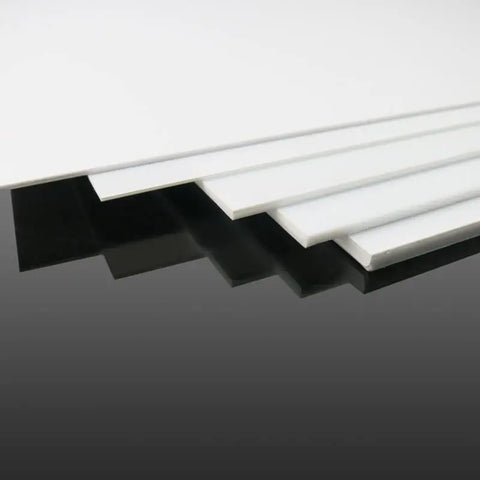
Unleashing the Potential of ABS Panels in Prototype Design
Acrylonitrile-Butadiene-Styrene (ABS), commonly referred to as ABS, has become a cornerstone material in the realm of design prototyping. Known for its moldable and resilient properties, ABS panels offer unmatched flexibility and durability, making them an excellent choice for developers and designers aiming to push the boundaries of innovation.
Moldability: Shaping the Future of Prototypes
ABS's ability to be shaped with ease under heat makes it a prime candidate for creating detailed and complex design prototypes. This thermoplastic marvel softens when heated and becomes rigid once cooled, allowing repeated manipulation without losing its integrity. Such characteristics make ABS panels particularly useful in scenarios where multiple iterations of a design are necessary to achieve perfection. The adaptability of ABS to various fabrication techniques, including thermoforming, CNC machining, and injection molding, enhances its application in creating models that closely mimic final products.
Resilience: Ensuring Longevity and Performance
The impact resistance of ABS is another attribute that prototyping studios cannot overlook. Prototypes often undergo rigorous testing to evaluate their viability, and ABS's robust nature ensures that it can withstand mechanical impacts and stresses without compromising the prototype’s structural integrity. This durability is crucial not only for the testing phase but also for the transport and handling of prototypes, which might be showcased to stakeholders or used in field tests.
Adapting to Design Changes and Testing Scenarios
Flexibility in design adaptation is a vital aspect of prototyping. ABS sheets excel here because they allow for quick and easy modifications. Whether it's tweaking the dimensions, altering the shape, or refining the aesthetics, ABS panels can be adjusted without extensive time or financial investment. This adaptability extends to testing scenarios as well, where prototypes might be subject to varying temperatures, pressures, or chemical exposures. ABS maintains its properties across a wide range of environmental conditions, making it ideal for tests that mimic real-world applications.
Conclusion
The integration of ABS sheets in the design and prototyping process marks a significant advancement in how prototypes are developed and refined. Their moldability and resilience ensure that designers can experiment with confidence, knowing that the material will not only meet but exceed the rigorous demands of prototype development. As we continue to explore the capabilities of ABS, its role in prototyping is set to grow, further cementing its status as an indispensable material in the creation of innovative and durable products.
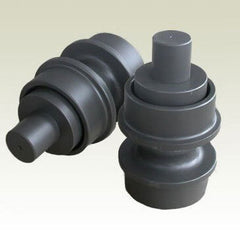
Material Advantages of ABS Sheets in Prototyping
Acrylonitrile-Butadiene-Styrene (ABS) sheets are a popular choice in prototyping for their numerous material advantages, which include being highly ductile and formable. These properties are particularly crucial in prototyping environments where precision and flexibility in design are paramount.
Ductility: The Key to Versatile Prototyping
The ductility of ABS sheets allows them to be manipulated into almost any shape without losing strength or integrity. This flexibility is essential when prototypes need to include intricate details or complex geometries. ABS's ability to stretch and bend without breaking under stress makes it an ideal candidate for projects that require fine tuning through multiple iterations. Designers and engineers can rely on ABS to maintain its quality throughout the design process, from initial concept to final prototype.
Formability: Achieving Precision in Prototypes
Alongside ductility, the formability of ABS sheets stands out as a critical feature. This characteristic ensures that each prototype can be crafted with precise dimensions and tight tolerances. ABS can be easily cut, shaped, and finished with standard shop tools, allowing for rapid modifications and adjustments. The material's consistency in formability means that prototypes can accurately reflect the intended design without the variability that might come with less stable materials.
Cost-Effectiveness and Efficiency in Fabrication
Another significant advantage of using ABS sheets in prototyping is their cost-effectiveness. Compared to other thermoplastics, ABS provides a balance of strength and ease of use at a relatively low cost. This affordability does not compromise the quality or the capabilities of the prototypes, making ABS a go-to material for both high-volume manufacturing and bespoke project developments. Its efficient processing characteristics reduce waste and tool wear, further enhancing the economic benefits.
Conclusion
The integration of ABS sheets in the prototyping process leverages their ductility and formability to achieve high precision in prototype models. These material advantages make ABS an indispensable resource in the design and development sectors, enabling creators to bring their visionary concepts to life efficiently and economically. As industries continue to evolve, the role of ABS sheets in rapid prototyping remains crucial, providing a reliable foundation for innovation and creativity.
Exploring Cost-Effective Prototyping with ABS Thermoplastic Sheets
When it comes to prototyping, the choice of material can significantly affect both the quality of the end product and the overall project costs. Acrylonitrile-Butadiene-Styrene (ABS), a widely recognized thermoplastic, stands out not only for its physical properties but also for its cost-effectiveness in the prototyping process.
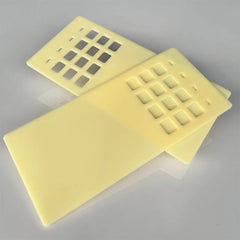
The Economic Benefits of ABS Durability
One of the most compelling advantages of ABS is its durability. This robustness means that prototypes made from ABS are less likely to break or degrade under testing conditions, which can be costly to replicate. The longevity of ABS ensures that fewer materials are wasted on reiterations, leading to substantial savings in both resources and time. Furthermore, the resilient nature of ABS allows it to withstand various fabrication processes without compromising its structural integrity, extending its usability and reducing the need for expensive specialized treatments.
Efficiency in Fabrication with ABS
Ease of fabrication is another area where ABS sheets excel, driving down manufacturing costs by simplifying the production process. ABS is compatible with a variety of fabrication techniques, from traditional cutting and drilling to more advanced methods like CNC machining and thermoforming. The versatility of ABS reduces the need for costly specialized equipment and allows for quicker setup and turnaround times in the prototyping phase. This efficiency not only cuts down on labor costs but also accelerates the development cycle, enabling faster time-to-market for new products.
Material and Cost Savings
The intrinsic properties of ABS thermoplastic allow for minimal material wastage during the prototyping phase. ABS can be melted and reformed without significant degradation, which means offcuts and misprints can potentially be recycled directly back into the production cycle. This recyclability is an essential factor in its cost-effectiveness, reducing the raw material costs and environmental impact associated with prototyping.
Conclusion
The use of ABS sheets in prototyping presents a compelling case for businesses looking to optimize their development expenditures. The combination of durability, ease of fabrication, and material efficiency makes ABS an attractive option for a wide range of industries, from automotive to consumer electronics, where rapid and cost-effective development cycles are crucial. As companies continue to seek ways to reduce costs while improving product quality, ABS stands out as a material that can meet these demands effectively.
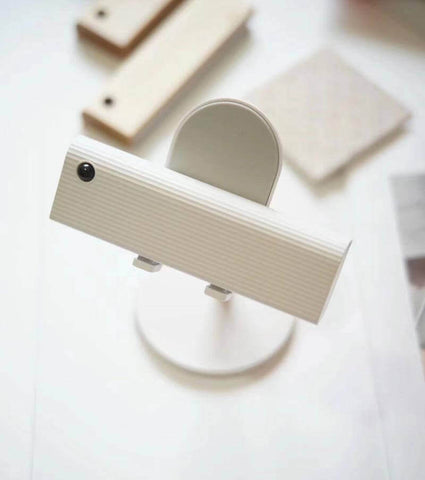
The Crucial Role of Impact Resistance in ABS Prototyping
Prototyping materials must withstand rigorous testing to validate the design and functionality of a product. Acrylonitrile-Butadiene-Styrene (ABS) is renowned for its outstanding impact resistance and strength, properties that are vital for prototypes that undergo extensive evaluation.
High Impact Resistance for Reliable Testing
ABS's high impact resistance ensures that prototypes can endure physical stresses without suffering damage, which is crucial during the testing and evaluation phase. This durability allows designers and engineers to perform drop tests, stress tests, and other forms of durability testing without the prototype succumbing to fractures or deformities. Such resilience is particularly important in industries like automotive and consumer electronics, where safety and longevity are paramount.
Strength of ABS in Diverse Prototyping Scenarios
The strength of ABS does not merely pertain to its ability to resist breaking under force; it also includes its capacity to maintain structural integrity under various environmental conditions. ABS sheets can withstand exposure to chemicals, varying temperatures, and prolonged physical stress, making them ideal for creating prototypes that must mimic the final product's operating conditions. This attribute ensures that evaluations and tests yield accurate insights into how the actual product will perform in real-world scenarios.
Leveraging ABS Durability for Cost-Effective Development
The robust nature of ABS also contributes to cost effectiveness in the prototyping process. Prototypes that resist wear and tear can be used repeatedly across multiple test phases, which decreases the need for replacements and conserves resources. Additionally, the ability to reuse a single prototype for various tests not only saves material costs but also speeds up the development process, allowing for quicker iterations and enhancements.
Conclusion
The impact resistance and inherent strength of ABS sheets are not just beneficial; they are essential for developing prototypes that accurately represent final products. These characteristics ensure that prototypes can endure the rigorous testing necessary for reliable product development, ultimately leading to safer, more durable, and more effective products on the market. The use of ABS in prototyping thus provides a dependable foundation for product testing and evaluation, reinforcing its status as a top material choice in numerous industries.
Transforming Ideas into Reality with ABS Plastic
The journey from a conceptual sketch to a tangible, functioning product is intricate and demands materials that can adapt quickly and effectively. Acrylonitrile-Butadiene-Styrene (ABS), a versatile thermoplastic, plays a pivotal role in this transformation, especially in rapid prototyping phases where speed and precision are crucial.
Rapid Prototyping with ABS: Speed and Adaptability
The rapid prototyping process is significantly accelerated by using ABS due to its ease of use in various fabrication techniques. ABS plastic is favored for its quick response to thermoforming, a method where sheets are heated and then formed over a mold. This technique allows for rapid iteration and modification, which is ideal for prototypes that require frequent adjustments based on testing feedback.
Precision Crafting with CNC Machining
CNC machining offers another dimension of precision and flexibility when working with ABS. This technology involves the computer-controlled removal of material from a solid block of ABS, which allows for intricate detailing and exact dimensional specifications. The ability to quickly produce high-fidelity prototypes that match the designers' specifications exactly makes CNC machining an invaluable part of the prototyping process with ABS.
Efficiency in Production and Development
The overall speed of production enabled by ABS is another reason why it's so prevalent in rapid prototyping. Prototypes can be created, tested, and refined in a loop that allows products to evolve swiftly from their initial concepts to market-ready models. This swift turn-around is crucial in today’s fast-paced market environments where being first can be the difference between market leadership and obsolescence.
Conclusion
The role of ABS in transforming a concept into reality is defined by its adaptability in rapid prototyping environments. Its compatibility with advanced manufacturing techniques like thermoforming and CNC machining allows for quick iterations and precise customizations, making ABS an essential material in the development of new products. By reducing the time and cost associated with prototype development, ABS not only streamlines the product design process but also enhances the ability of businesses to innovate and respond to market demands efficiently.
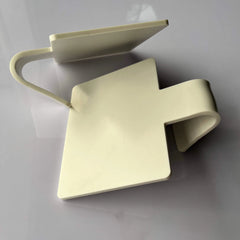
Frequently Asked Questions About ABS Sheets and BeePlastics Customization Services
1. What customization options does BeePlastics offer?
Answer: BeePlastics offers extensive customization services, including both sample customization and batch customization. We can tailor ABS sheet products to meet specific requirements, ensuring that each client receives a product perfectly suited to their needs.
2. What file formats does BeePlastics accept for designs?
Answer: We accept a variety of file formats to make the process as convenient as possible for our clients. This includes PDF and CAD files, which can be used directly to manufacture or prototype your designs.
3. Is there a minimum order quantity (MOQ) required at BeePlastics?
Answer: No, there is no minimum order quantity at BeePlastics. We support orders of all sizes, from single prototype pieces to large-scale production runs, ensuring flexibility for all our customers.
4. How does the production cycle work at BeePlastics?
Answer: The production cycle at BeePlastics depends on the quantity of the order and the complexity of the customization. We maintain open communication with our clients about production progress and any adjustments that might be necessary as the project advances.
5. Does BeePlastics provide samples?
Answer: Yes, we support the provision of samples. Samples are free of charge; however, the customer is responsible for covering the shipping costs.
6. How does BeePlastics ensure prototype accuracy using ABS sheets?
Answer: BeePlastics utilizes state-of-the-art manufacturing techniques including CNC machining and thermoforming, which allow for high precision and accuracy in prototypes. This ensures that prototypes strictly conform to client specifications and design files.
7. What industries typically use ABS sheets from BeePlastics?
Answer: ABS sheets are versatile and used across various industries including automotive, electronics, consumer goods, and more. They are chosen for their durability, ease of fabrication, and excellent mechanical properties.
8. Can BeePlastics handle urgent orders for ABS sheet products?
Answer: Yes, we can accommodate urgent orders. Our production flexibility allows us to expedite processes where necessary to meet client deadlines while maintaining the quality and specifications required.
9. Are there any special handling or storage requirements for ABS sheets?
Answer: ABS sheets should be stored in a cool, dry place away from direct sunlight to prevent warping or degradation. Handling should be done with care to avoid scratches or impacts that could affect the material’s integrity.
10. How does BeePlastics handle complex design requirements?
Answer: For complex design requirements, our team works closely with clients to understand their specific needs. We use advanced software to manage intricate designs and ensure that all details are accounted for during the manufacturing process.
In conclusion, ABS sheets offer a highly versatile and cost-effective solution for a wide range of prototyping needs across various industries. Whether you're in automotive, electronics, or consumer goods, the durability, ease of fabrication, and the ability to withstand rigorous testing make ABS an ideal choice for rapid prototyping. At BeePlastics, we pride ourselves on providing tailored solutions with flexible customization options, no minimum order requirements, and a commitment to maintaining open communication throughout the production process. By choosing BeePlastics, you ensure that your prototypes are not only built to your exact specifications but also supported by a team dedicated to pushing the boundaries of what's possible with ABS plastic materials.
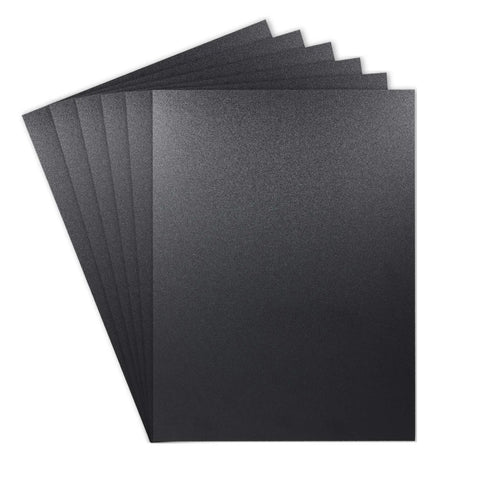
Get Started on Your Next Project
Are you ready to elevate your prototyping with high-quality ABS sheets? Learn more about our precision customization by visiting our ABS Plastic Machining page. Have specific questions or ready to kickstart your project? Fill out the contact form below and let's create something incredible!
-
Posted in
ABS sheets, design studios, manufacturing, product design, product development, prototyping

